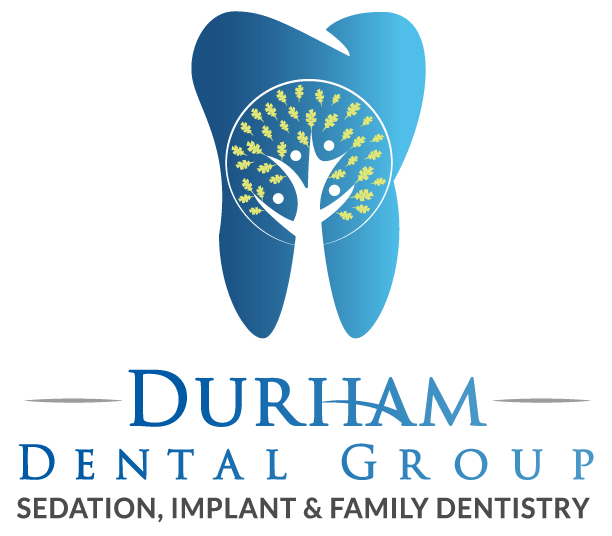Why do you need to remove your wisdom teeth?
The removal of wisdom teeth is a very common type of oral surgery performed during late teen and early adult years when wisdom teeth usually erupt in most individuals. When these teeth emerge, they can often be problematic if they are impacted (see below) or in an area that is difficult to keep clean. At DDG, our team of highly skilled, gentle, and compassionate dental professionals recognizes the significance of employing proper removal techniques, ensuring effective pain management, and providing meticulous post-removal care. Irrespective of your age, we are dedicated to assisting you in making informed decisions regarding the potential benefits of wisdom teeth removal.
Impacted Wisdom Teeth
Impacted wisdom teeth refer to the condition where the wisdom teeth, also known as third molars, do not have enough space to fully emerge or develop properly in the mouth. This often occurs due to limited jaw space or the teeth growing at an angle. As a result, impacted wisdom teeth may remain partially or completely trapped within the gum tissue or bone.
Impacted wisdom teeth can lead to various issues, including pain, swelling, infection, and damage to neighboring teeth. They can also cause complications such as gum disease, tooth decay, and cyst formation. In some cases, impacted wisdom teeth may not exhibit any noticeable symptoms but can still pose long-term risks to oral health.
When wisdom teeth grow normally
Many people do in fact have sufficient space in the jaw for their wisdom tooth to grow in a healthy and non-problematic way. However, while it is true that a considerable number of individuals possess ample jaw space for their wisdom teeth to grow without complications, there are cases where even these individuals are susceptible to wisdom tooth decay. This vulnerability arises due to the challenging accessibility of these teeth positioned at the back of the mouth, making it arduous to maintain proper oral hygiene through effective brushing and flossing in those areas. Consequently, despite having adequate space, the difficulty in reaching these teeth increases the risk of decay and other related issues.
When Should You Remove Your Wisdom Teeth?
Recognizing the indications that necessitate the removal of your wisdom teeth involves paying attention to common signals. Discomfort and mild pain in the vicinity of your wisdom teeth, particularly as they are about to erupt, serve as primary indicators. Additionally, recurring jaw pain, gross decay on the teeth, unpleasant tastes or swollen gums at the eruption sites may suggest the need for removal.
To ensure an accurate diagnosis and a well-planned removal, our doctors at DDG employ a comprehensive approach. Through thorough physical examinations and x-ray imaging, they assess the precise location and developmental stage of your wisdom teeth. They will explain their findings in a clear manner, presenting you with considerate options tailored to your specific needs. Your input and preferences will be attentively heard and taken into account as we determine the most suitable approach for extracting your wisdom teeth.
Discomfort Management During Wisdom Teeth Removal
The removal of wisdom teeth offers a significant advantage in terms of reducing pain and discomfort compared to the natural eruption process, particularly for impacted wisdom teeth. At DDG, we understand the importance of ensuring our patients’ comfort throughout the removal procedure. Patients have the option of being awake or under appropriate sedation, further enhancing their comfort during the process.
During the removal, our team remains by your side, attentively addressing any concerns or discomfort you may experience. We prioritize minimizing, and in many cases, eliminating any discomfort as your wisdom teeth are gently and skillfully removed. Your well-being and comfort are paramount to us, and we strive to create an environment where you can feel secure and at ease throughout the procedure.
Click here to learn more about our sedation options!
Post Removal of Wisdom Teeth
After the removal of your wisdom teeth, it is important to follow these post-operative instructions to promote proper healing and minimize complications:
- Gently bite on the gauze pads: Bite down on the gauze pads placed over the extraction sites for about 30 minutes to control bleeding. Replace the gauze as needed until the bleeding stops.
- Take prescribed medication: If prescribed pain medication or antibiotics, take them as directed by your dentist or oral surgeon. Follow the recommended dosage and complete the entire course of antibiotics if provided.
- Apply ice packs: For the first 24 hours, apply ice packs to the outside of your face near the extraction sites to reduce swelling. Use them for 15 minutes on, then 15 minutes off.
- Rest and avoid physical activity: Rest for the first 24 hours after the extraction. Avoid strenuous activities that can increase bleeding or delay healing.
- Maintain oral hygiene: After the first 24 hours, gently rinse your mouth with warm saltwater solution (half teaspoon of salt dissolved in 8 ounces of warm water) several times a day to keep the area clean. Avoid vigorous rinsing or spitting for the first day.
- Soft diet: Stick to soft, easy-to-chew foods for a few days. Avoid hot, spicy, and crunchy foods that can irritate the extraction sites.
- Avoid smoking and drinking through a straw: Smoking and using straws can dislodge blood clots and delay healing. Refrain from these activities for at least 72 hours.
- Keep the extraction sites clean: Brush your teeth carefully, avoiding the extraction sites. Gently clean around the areas to prevent infection.
- Follow-up appointment: Attend your follow-up appointment as scheduled to monitor your healing progress and address any concerns.
Remember, everyone’s healing process is unique, so it’s essential to follow your specific post-operative instructions provided by us.


